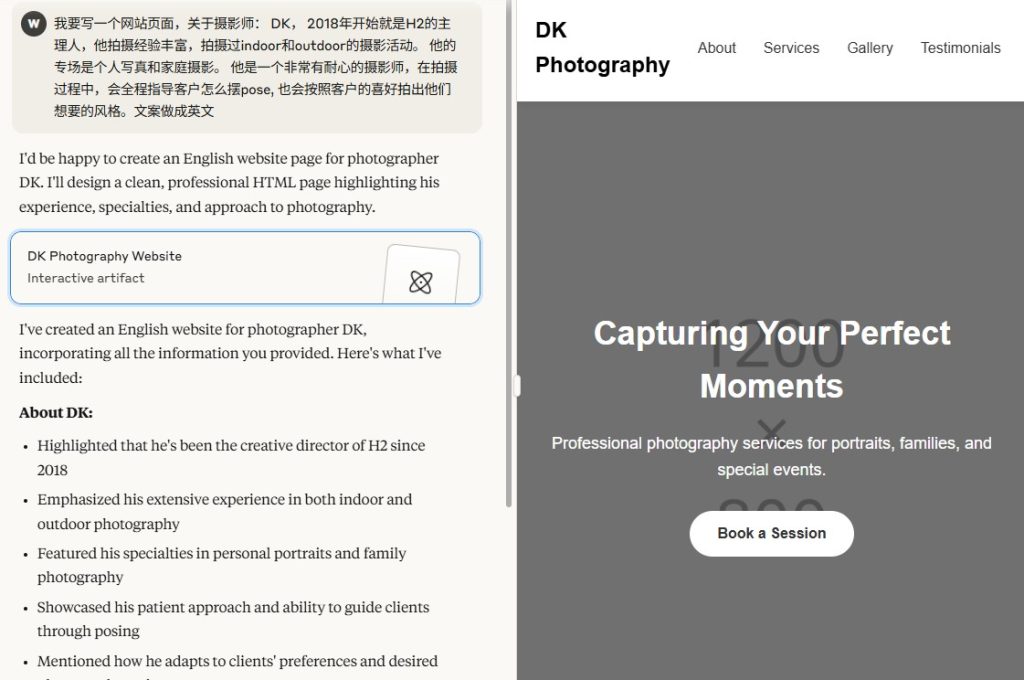In the vast landscape of the internet, having a well-designed website is just the first step towards success. To truly thrive in the online world, your website needs to be easily discoverable by search engines, and that’s where the power of DIY SEO (Search Engine Optimization) comes into play. In this blog post, we’ll explore the significance of DIY SEO and how it can empower you to enhance your website’s visibility, drive organic traffic, and ultimately, achieve your online goals.
Understanding SEO
SEO is the practice of optimizing your website to rank higher in search engine results pages (SERPs). When potential visitors search for relevant information, products, or services, search engines like Google strive to deliver the most relevant and valuable results. By implementing SEO strategies for your Singapore business, you can ensure that your website is favoured by search engines, leading to increased visibility and, consequently, more organic traffic.
The Benefits of DIY SEO
Cost-Effective Approach:
Hiring professional SEO services in Singapore often comes with a substantial cost, which can be a significant barrier for small businesses or individuals with limited budgets. The beauty of DIY SEO lies in its cost-effectiveness, allowing you to manage your resources more efficiently. By learning and implementing SEO strategies on your own, you avoid the expenses associated with hiring external experts. Many fundamental SEO techniques, such as keyword optimization, on-page adjustments, and content creation, can be executed with minimal financial investment. This cost-saving aspect is particularly advantageous for startups and entrepreneurs looking to establish a strong online presence without compromising their financial stability.
Tailored to Your Needs:
Every business or website is unique, and a one-size-fits-all approach to SEO may not yield the best results. DIY SEO empowers you to tailor your strategies according to your specific needs, understanding that nobody knows your business or website better than you do. This personalized approach allows you to address the nuances of your industry, cater to the preferences of your target audience, and align your SEO efforts with your overarching business goals. Customizing your SEO strategies ensures that they are not only relevant but also more effective in reaching and engaging with your intended audience. This level of personalization is often challenging to achieve when relying solely on external SEO agencies.
Continuous Improvement:
SEO is a dynamic field that evolves over time. Search engine algorithms change, industry trends shift, and user behavior adapts to new technologies. DIY SEO provides you with the autonomy to continuously monitor and refine your strategies based on real-time performance data. Unlike a one-time SEO service, where adjustments may be infrequent or delayed, managing your SEO efforts allows for immediate adaptation to changes. Whether it’s updating content to remain relevant, refining keyword targeting, or adjusting website elements for better user experience, the ability to make timely modifications enhances the agility of your online presence. This commitment to continuous improvement is a key factor in staying competitive in the ever-changing landscape of the digital world.
The benefits of DIY SEO extend beyond mere cost savings. It provides a tailored and adaptable approach that aligns with your business objectives, ensuring sustained growth and visibility in the online realm. By taking control of your SEO strategies, you not only save on costs but also empower yourself to navigate the dynamic landscape of search engine optimization, ultimately driving meaningful results for your website or business.
The Drabacks of DIY SEO
While DIY SEO can be empowering and cost-effective, it’s important to acknowledge the potential disadvantages and challenges associated with managing your own search engine optimization. Here are some drawbacks to consider:
Time-Consuming:
Implementing effective SEO strategies takes time and effort. DIY SEO requires a significant time commitment to learning, strategizing, implementing changes, and monitoring results. For busy business owners or individuals, dedicating sufficient time to SEO activities may be challenging, leading to a slower pace of progress compared to hiring professionals.
Steep Learning Curve:
SEO is a complex field that involves understanding algorithms, analytics, and various optimization techniques. The learning curve for beginners can be steep, and keeping up with the ever-evolving nature of SEO can be daunting. Without a solid understanding of SEO best practices, there is a risk of implementing strategies incorrectly, which can lead to suboptimal results or even penalties from search engines.
Limited Resources and Tools:
Professional SEO agencies often have access to advanced tools and resources that may not be readily available to individual website owners. DIY SEO might be limited by the tools you can afford or access for free. Comprehensive SEO often involves utilizing analytics platforms, keyword research tools, and SEO auditing software, which may have associated costs.
Risk of Penalties:
Incorrectly implemented SEO strategies, especially those attempting to manipulate search engine algorithms, can lead to penalties from search engines. Search engines like Google have strict guidelines, and violating them can result in a drop in rankings or even the removal of your site from search results. DIY practitioners may inadvertently engage in practices that violate these guidelines, putting their website at risk.
Competitive Disadvantage:
In competitive industries, businesses often invest heavily in professional SEO services to gain an edge. Attempting to compete with such entities using DIY SEO alone may put you at a disadvantage, especially if your competitors are leveraging the expertise of seasoned SEO professionals.
In conclusion, while DIY SEO has its merits, it’s essential to weigh the disadvantages against the benefits. Consider your available resources, the complexity of your website, and the competitive landscape before deciding whether to manage SEO internally or seek professional assistance.
DIY SEO Strategies
DIY SEO strategies collectively form a comprehensive approach to improving your website’s visibility and search engine rankings. By focusing on the following strategies, you create a solid foundation for a successful SEO campaign that resonates with both search engines and your target audience.
Keyword Research:
Keyword research is the foundation of any successful SEO strategy. It involves identifying and targeting the words and phrases your target audience uses when searching for information related to your content or business. Tools like Google Keyword Planner or Ubersuggest can help you discover relevant keywords, assess their search volumes, and understand their competitiveness. By incorporating these keywords strategically into your content, meta tags, and headings, you enhance your website’s visibility and relevance to search engines.
On-Page Optimization:
On-page optimization focuses on making your individual web pages more search engine-friendly. This includes optimizing your content by incorporating relevant keywords naturally, creating descriptive and enticing meta tags, structuring headings appropriately, and optimizing images for faster load times. The goal is to provide a clear and valuable signal to search engines about the relevance and quality of your content, improving the likelihood of higher rankings in search results.
Quality Content Creation:
High-quality, relevant, and engaging content is at the core of a successful SEO strategy. Create content that addresses the needs and interests of your target audience. This could be in the form of blog posts, articles, videos, or any other content format suitable for your audience. Regularly update your content to stay current and provide ongoing value. Search engines reward fresh and valuable content, and it encourages repeat visits from your audience.
Link Building:
Building a strong and authoritative link profile is crucial for SEO success. High-quality backlinks from reputable websites within your industry signal to search engines that your content is valuable and trustworthy. Engage in link-building strategies such as guest posting on relevant websites, creating shareable content that naturally attracts links, and networking within your niche. However, prioritize quality over quantity, as search engines value the relevance and authority of your links.
Mobile Optimization:
The use of mobile devices for internet browsing has skyrocketed in recent years. Google recognizes the importance of mobile-friendliness and considers it a ranking factor. Ensure that your website is optimized for mobile devices, providing a seamless and enjoyable user experience regardless of the device used. Responsive design, fast loading times, and easy navigation on mobile devices contribute positively to your website’s SEO performance.
User Experience:
A positive user experience is not only beneficial for your visitors but also a key factor for search engine rankings. Improving page load speed, ensuring easy navigation, and enhancing overall website usability contribute to a positive user experience. Search engines aim to deliver results that provide a good user experience, so optimizing these aspects of your website can positively impact your SEO efforts.
Conclusion
DIY SEO is a powerful tool that puts the control of your website’s visibility in your hands. By understanding the fundamentals of SEO and implementing effective strategies, you can boost your website’s ranking, increase organic traffic, and achieve online success. Embracing the power of DIY SEO allows you to tailor your approach, making it a cost-effective and personalized solution.
However, it’s crucial to recognize that DIY SEO is not without its challenges. The time investment, learning curve, and potential pitfalls can be significant hurdles. In a competitive digital landscape, businesses often turn to digital marketing agencies to navigate these challenges and extract maximum value from their online presence.
Digital marketing agencies bring a wealth of expertise to the table. They have dedicated professionals who stay abreast of industry trends, algorithm changes, and the latest SEO strategies.








